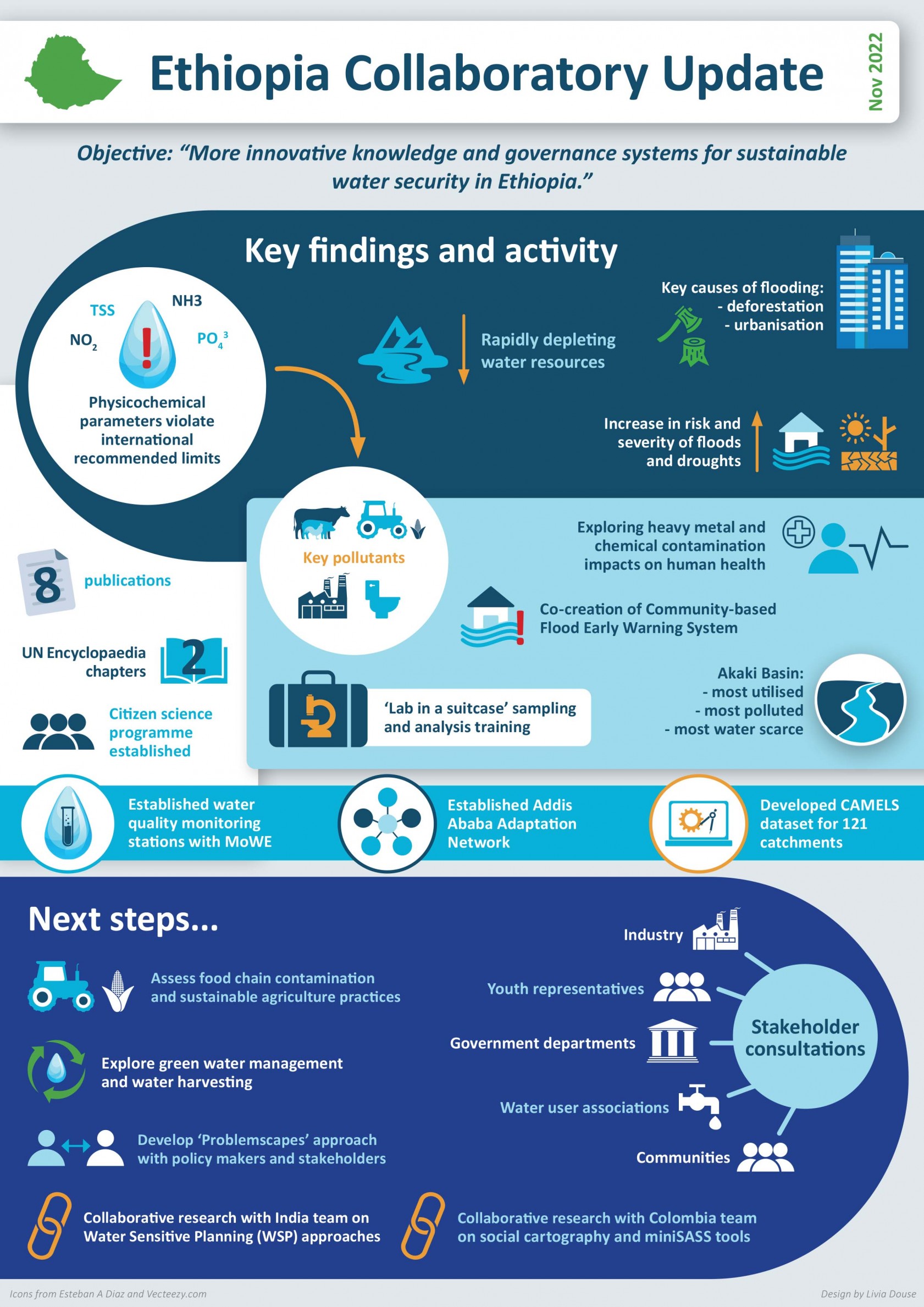Infographic update | Ethiopia
To celebrate our first in-person Hub Assembly since the COVID-19 pandemic, we produced a series of infographics to capture some of our achievements to date, including key research findings and exciting next steps in each of our Collaboratories.
06 January 2023

Ethiopia
Objective: More innovative knowledge and governance systems for sustainable water security in Ethiopia
Key findings and activity
One of the Ethiopia team’s developing research strands is linkages between water and public health. So far, the team has explored impacts of heavy metal and chemical contamination on human health, investigated physicochemical parameters, and mapped key pollutants. They have also established water quality monitoring stations with the Ethiopian Ministry of Water and Energy and conducted sampling and analysis training with key stakeholders, like the Addis Ababa Water and Sewerage Authority (AAWSA), using the Hub’s innovative ‘Lab in a suitcase’.
To develop effective tools, the team has been working with local communities to co-create tailored solutions, including a Community-based Flood Early Warning System (CBFEWS), which provides an opportunity to support communities to protect themselves from flood damage through a bottom-up approach. Establishing a citizen science programme and training citizen scientists has been a crucial step towards this and many other aspects of the team’s work, helping to fill data collection gaps; enhance environmental understanding and awareness within communities; and allow communities to engage in water management and adaptation discussions. Ethiopian colleagues have worked with researchers based at Newcastle University to complete data generation, database development, and the characterisation of 121 catchments found in the Abbay Basin. Following the award of a micro-grant from the Adaptation Research Alliance (ARA), the team has established the Addis Ababa Adaptation Network (AAAN) to explore burning adaptation issues facing Ethiopia’s capital city.
Next steps
Following on from initial exploration of the ‘Problemscape’ methodology, a key next step for the Ethiopia team is to develop the approach with direct input from policy makers and stakeholders, helping move towards integrated river basin management and shape water policy. Building upon our contribution to the UN Encyclopaedia of SDGs, the Ethiopia team is exploring soil and water conservation as part of sustainable agricultural practices. Next steps also include assessing food chain contamination, and exploring green water management, water recycling, and water harvesting. As well as planned collaborative consultations and exchanges for capacity building with a variety of stakeholders, the team are working with colleagues in India and Colombia on water sensitive planning, social cartography methods, and using miniSASS to monitor river health.



